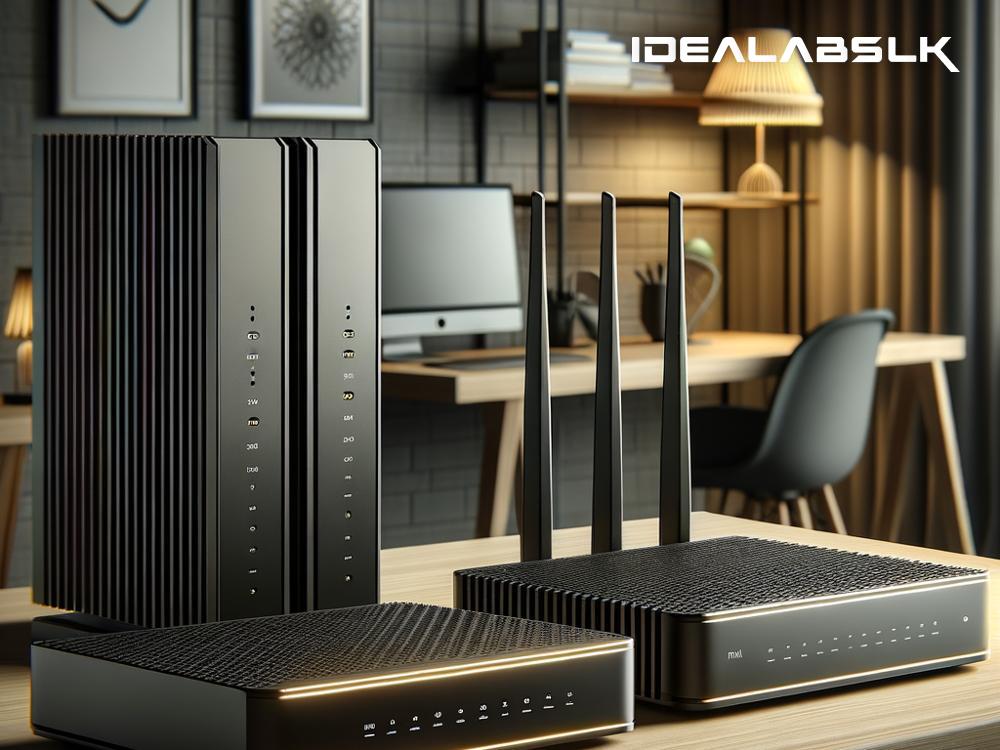In the world of Wi-Fi routers, making the right choice can sometimes feel like navigating a maze without a map. Among the plethora of options, two models that have attracted attention for their impressive capabilities are the TP-Link Archer BE800 and the ASUS ZenWiFi Pro ET12. Both are designed to cater to the needs of users demanding high-speed internet and extensive coverage. In this article, we'll compare these two routers to help you figure out which one might be the best fit for your digital lifestyle.
Design and Aesthetics
First, let’s talk about how these routers look because, let’s face it, nobody wants an eyesore in their living space. The TP-Link Archer BE800 boasts a sleek, futuristic design with its antennas neatly tucked away, giving it a clean, minimalist look. On the other hand, the ASUS ZenWiFi Pro ET12 also enjoys a modern design but with a slightly more prominent profile due to its external antennas. Both are stylish in their own way and should blend well with most home decors, but if you prefer a router that is more compact, the BE800 might have the edge.
Performance and Speed
Now, onto the meat of the matter: how well do they perform? Both routers support Wi-Fi 6 technology, which is the latest standard that promises faster speeds, better range, and more efficient data encoding. The TP-Link Archer BE800 claims impressive speeds of up to 8000 Mbps, while the ASUS ZenWiFi Pro ET12 isn't far behind, offering speeds up to 11000 Mbps under ideal conditions. It's important to note that real-world speeds often vary due to numerous factors like device capabilities, physical obstructions, and network congestion. However, both routers are more than capable of handling multiple devices and demanding tasks like 4K streaming and online gaming.
Coverage and Connectivity
When it comes to providing Wi-Fi coverage across large homes, both routers deliver excellently. The Archer BE800 is equipped to cover up to 6,500 square feet, thanks to its high-power FEM (Front-End Module), which enhances signal strength and penetration. The ZenWiFi Pro ET12, with its powerful hardware and ASUS RangeBoost Plus technology, offers similar extensive coverage.
Connectivity options are vital for any router, and both models come with multiple ports for wired connections. The BE800 features one 10Gbps WAN/LAN SFP+ port and one 10Gbps LAN port, making it an excellent option for those who need high-speed wired connections, such as for NAS (Network Attached Storage) systems or high-speed internet plans. The ZenWiFi Pro ET12, while also offering a 10G port, provides more flexibility with its additional 2.5G WAN/LAN port, catering to a wider range of devices and use scenarios.
Features and Usability
Both TP-Link and ASUS routers come packed with features. The Archer BE800 offers TP-Link HomeShield for enhanced network security, parental controls, and IoT device protection. ASUS’s offering includes AiProtection Pro, powered by Trend Micro, with similar security measures and parental controls. Both routers support mesh networking, allowing you to expand coverage throughout your home by adding compatible units.
In terms of usability, both brands have made efforts to simplify the setup and management process. The TP-Link Tether app and the ASUS Router app, respectively, facilitate easy setup, network management, and device prioritization right from your smartphone.
Price and Value
When considering price, both routers fall into the high-end category, reflecting their advanced features and performance capabilities. The ASUS ZenWiFi Pro ET12 typically comes at a higher price point than the TP-Link Archer BE800, which might make the latter more appealing for those on a stricter budget. However, the decision should ultimately depend on your specific needs and which router offers the features more aligned with your requirements.
Conclusion
Choosing between the TP-Link Archer BE800 and the ASUS ZenWiFi Pro ET12 comes down to what matters most to you in a router. If you prioritize sleek design and slightly better pricing while still getting excellent performance and coverage, the Archer BE800 might be the way to go. On the other hand, if you're after maximum speed, flexibility in connectivity, and don't mind paying a premium for it, the ZenWiFi Pro ET12 could be your ideal choice.
Ultimately, both routers stand out for their fast speeds, extensive coverage, and range of features, and either would be a solid pick for a demanding home network. Your decision will likely hinge on specific needs like design preference, budget, and the slight differences in their feature sets.

